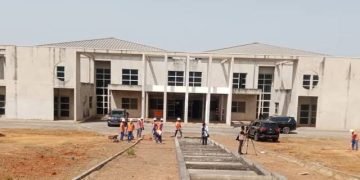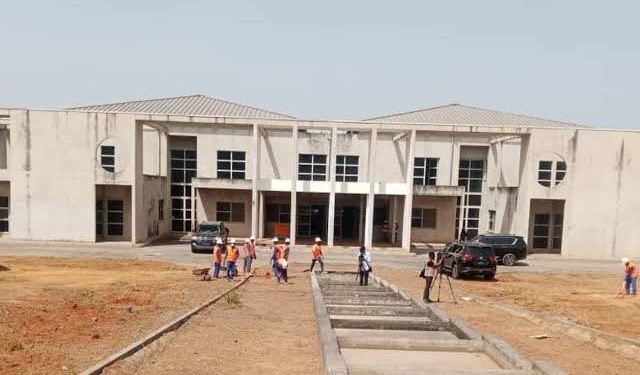In recent days, the proposed allocation of N15 billion for the construction of a new mansion for the Vice President in the 2024 Federal Appropriation Bill has sparked widespread debate and criticism. This extravagant request, presented by President Bola Tinubu at the joint session of the National Assembly, has ignited opposition and raised questions about the priorities of the government in the face of pressing economic challenges. The 10th National Assembly, under the leadership of Senator Godswill Akpabio, now faces a significant litmus test as it contemplates the approval of this sizable budget for the Vice President’s residence. The Minister of the Federal Capital Territory, Nyesom Wike, defended the allocation, citing a project earmarked 13 years ago at N10 million but later revised by contractors to N15 billion. The ambitious goal is to complete the mansion by the middle of 2024.
The proposal has not gone unnoticed or unchallenged. Organizations like the Socio-Economic Rights and Advocacy Project (SERAP) have threatened legal action against the National Assembly if it fails to exercise its constitutional oversight power and halt the extravagant spending. Such a stance is rooted in the stark reality that a significant portion of the Nigerian population is grappling with poverty, starvation, and a struggling education system.
Peter Obi, the Labour Party presidential candidate in the 2023 elections, expressed shock and disheartenment over the proposed budgetary provision. He pointed out that the Vice President already has a residence, and in recent budgets, substantial amounts were allocated for the renovation of both his Abuja and Lagos residences. Obi emphasized the stark contrast between the proposed budget for the Vice President’s mansion and the urgent needs of the nation, including the growing poverty rate, collapsing health facilities, and skyrocketing unemployment. In a nation where over 90 million people are reportedly starving, and more than 140 million are living in multidimensional poverty, allocating such a massive budget for the comfort of a high-ranking official raises ethical and practical concerns. The call for prudence is not just from political figures like Peter Obi but resonates with the broader sentiment of the Nigerian public.
The timing of this proposal is particularly questionable given the economic challenges facing the country. With the federal government intending to borrow N7.8 trillion out of its N27 trillion 2024 budget and allocate N8.25 trillion for debt servicing, concerns about fiscal responsibility and public welfare become even more pertinent. As the President describes the financial situation as a “dry well,” the insistence on such extravagant spending sends mixed signals about the government’s commitment to addressing the immediate needs of its citizens.
It is imperative for the government to reassess its priorities, suspend the proposed N15 billion expenditure on the Vice President’s mansion, and redirect its focus towards production rather than consumption. The outcry against this allocation underscores the need for leadership that reflects the mood of the nation, especially during times of widespread hardship. As Peter Obi aptly puts it, we need leaders who show compassion and are willing to sacrifice for the common progress and development of the nation.








































